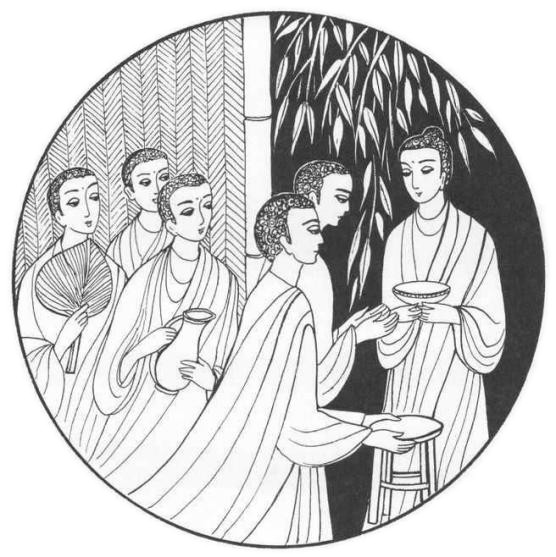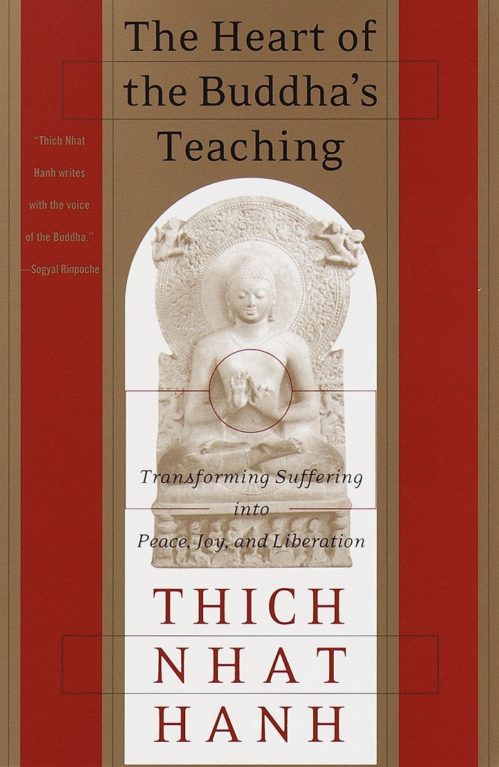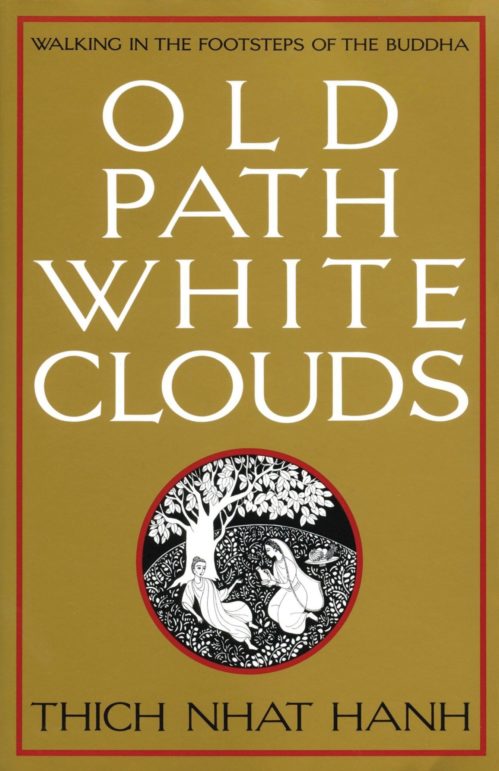
This is what I have heard. At one time the World-Honored One was staying near Varanasi at Isipatana in the Deer Park. At that time the World-Honored One addressed the group of five monks, saying, “Bhikkhus, there are two extremes that a monk should avoid. What are the two?
“The first is the devotion to sensual desire and the pleasure resulting from sensual desire. Such devotion is base, pedestrian, worldly, ignoble, and unbeneficial. The second is devotion to harsh austerity. Such devotion is painful, ignoble, and unbeneficial. By not following either of these extremes, the Tathagata has realized the Middle Way that gives rise to seeing and understanding. This seeing and understanding are at the bases of peace, knowledge, full awakening, and nirvana.
“What is the Middle Way, bhikkhus, that the Tathagata has realized that gives rise to seeing and understanding, when that seeing and understanding are at the bases of peace, knowledge, full awakening, and nirvana?
“It is the Noble Eightfold Path, consisting of Right View, Right Thinking, Right Speech, Right Action, Right Livelihood, Right Diligence, Right Mindfulness, and Right Concentration. This is the Middle Way, bhikkhus, that the Tathagata has realized that gives rise to seeing and understanding when that seeing and understanding are at the bases of peace, knowledge, full awakening, and nirvana.
“Here, bhikkhus, is the Noble Truth of suffering. Birth is suffering. Old age is suffering. Sickness is suffering. Death is suffering. Sorrow, grief, mental anguish, and disturbance are suffering. To be with those you dislike is suffering. To be separated from those you love is suffering. Not having what you long for is suffering. In other words, to grasp the Five Aggregates as though they constitute a self is suffering.
“Here, bhikkhus, is the Noble Truth of the cause of suffering. It is the desire to be born again, delight in being born again, attached to the pleasures found in this and that. There is the craving for sense pleasures, for becoming, and for not becoming any more.
“Here, bhikkhus, is the Noble Truth of ending suffering. It is the fading away and ending of craving without any trace. It is giving up, letting go of, being free from, and doing away with craving.
“Here, bhikkhus, is the Noble Truth of the Path that leads to the end of suffering. It is the Noble Eightfold Path of Right View, Right Thinking, Right Speech, Right Action, Right Livelihood, Right Diligence, Right Mindfulness, and Right Concentration.
“Monks, when I realized the Noble Truth of suffering, seeing, understanding, insight, wisdom, and light arose in me with regard to things I had not heard before.
“Monks, when I realized the Noble Truth of suffering needs to be understood, seeing, understanding, insight, wisdom, and light arose in me with regard to things I had not heard before.
“Monks, when I realized the Noble Truth of suffering has been understood, seeing, understanding, insight, wisdom, and light arose in me with regard to things I had not heard before.
“When I realized the Noble Truth of the causes of suffering, seeing, understanding, insight, wisdom, and light arose in me with regard to things I had not heard before.
“When I realized that the causes of suffering need to be given up, seeing, understanding, insight, wisdom, and light arose in me with regard to things I had not heard before.
“When I realized that the causes of suffering have been given up, seeing, understanding, insight, wisdom, and light arose in me with regard to things I had not heard before.
“When I realized the Noble Truth of ending suffering, seeing, understanding, insight, wisdom, and light arose in me with regard to things I had not heard before.
“When I realized that the ending of suffering needs to be experienced, seeing, understanding, insight, wisdom, and light arose in me with regard to things I had not heard before.
“When I realized that the ending of suffering has been experienced, seeing, understanding, insight, wisdom, and light arose in me with regard to things I had not heard before.
“When I realized the Noble Truth of the Path that leads to the end of suffering, seeing, understanding, insight, wisdom, and light arose in me with regard to things I had not heard before.
“When I realized that the Path that leads to the end of suffering needs to be practiced, seeing, understanding, insight, wisdom, and light arose in me with regard to things I had not heard before.
“When I realized that the Path that leads to the end of suffering has been practiced, seeing, understanding, insight, wisdom, and light arose in me with regard to things I had not heard before.
“As long as insight and understanding of the Four Noble Truths in their three stages and twelve aspects, just as they are, had not been realized, I could not say that in the world with its gods, maras, brahmas, recluses, brahmans, and humans, someone had realized the highest awakening.
“Monks, as soon as insight and understanding of the Four Noble Truths in their three stages and twelve aspects, just as they are, had been realized, I could say that in this world with its gods, maras, brahmas, recluses, brahmans, and humans, someone had realized the highest awakening, that understanding and seeing have arisen, that the liberation of my mind is unshakable, that this is my last birth, that there is no more becoming.”
When the World-Honored One had spoken, the five monks rejoiced in their hearts. Upon hearing the Four Noble Truths, the pure eye that sees the meaning of the teachings without attachment arose in the monk Kondañña. He realized that everything that is of the nature to arise is of the nature to cease.
When the Dharma Wheel had thus been turned by the World-Honored One, the Earth gods proclaimed, “Near Varanasi at Isipatana in the Deer Park, the highest Wheel of the Dharma has been set in motion. It cannot be turned back by recluses, brahmans, gods, maras, brahmas, or anyone in any world.”
When the four kings heard the Earth gods’ proclamation, they proclaimed, “Near Varanasi at Isipatana in the Deer Park, the highest Wheel of the Dharma has been set in motion. It cannot be turned back by recluses, brahmans, gods, maras, brahmas, or anyone in any world.”
When the gods of the Thirty-Third Heaven, the gods of the Realm of the Dead, the Tushita gods, the gods who rejoice in creation, the gods who have power through control of others, and the gods in the company of Brahma heard the four kings’ proclamation, they proclaimed, “Near Varanasi at Isipatana in the Deer Park, the highest Wheel of the Dharma has been set in motion. It cannot be turned back by recluses, brahmans, gods, maras, brahmas, or anyone in any world.”
At that hour, at that moment, in an instant of time, the proclamation reached the world of Brahma, and the Ten-Thousand World Systems shook and shook again. An immeasurable splendor was seen throughout the world, surpassing the splendor of all the gods.
Inspired, the World-Honored One spoke: “Indeed, Kondañña has understood. Indeed, Kondañña has understood.” Thus, Kondañña received the name Kondañña Who Understands.
Translated by Thich Nhat Hanh from Dhammacakkappavattana Sutta, Samyutta Nikāya 56.11.







Join the conversation